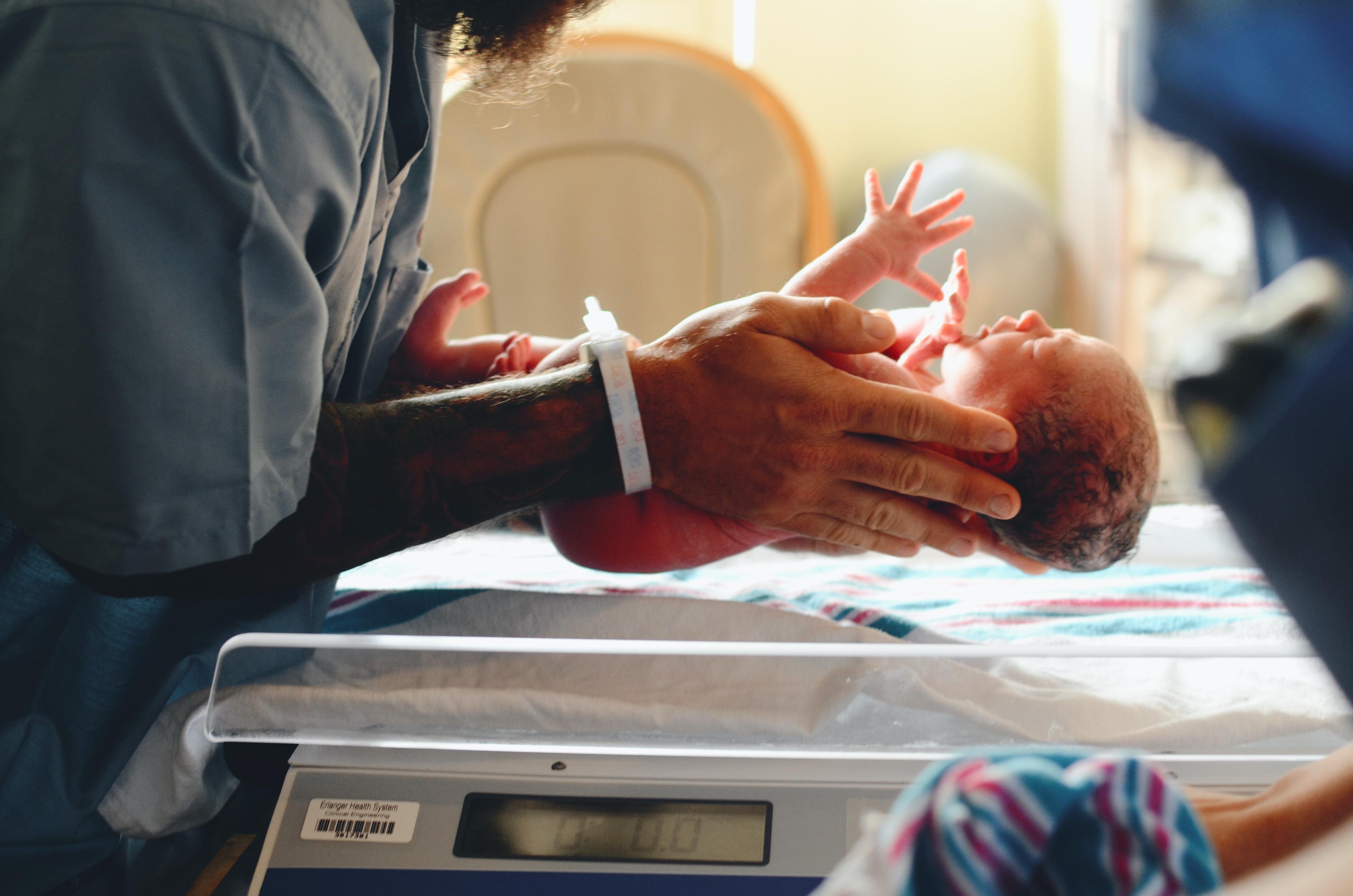- Home
- »Articles
- »Baby
- »Development
- »What will a Midwife check after my baby is born?



What will a Midwife check after my baby is born?
13 June 2023
If you’re expecting a baby, you may be wondering about the initial checks done on their health when they’re born. Here are five things a midwife will typically look for in the hours and days following the birth of a baby.
Your baby's breathing
This is generally the first check done when your baby is born, ensuring your baby is breathing properly. Medics will check for any blockages in your newborn’s airways and make sure the cord is not wrapped around their throat. They’ll also be looking for a strong heart rate. A baby’s breathing is an essential indicator of their overall health, and the midwife will use it to help identify any potential problems. Medical staff will provide oxygen and other support if your baby is having difficulties in this area.
How your baby is feeding
In the hours and days after your baby is born, the midwife will check how they are feeding. This is important because it can give them an indication of how well your baby is doing. If they’re not feeding well, they may be dehydrated or have low blood sugar levels, which could need medical intervention. Staff will check for any problems that might be making feeding difficult, such as tongue-tie. This is crucial since your infant’s growth may be impacted if they aren’t able to take in enough milk.
Your baby's nappy output
Perhaps it’s not what you want to focus on when you have a beautiful new addition to your family, but the number of wet and soiled nappies can give medical staff important clues about your baby's health. For example, if your baby is producing very little urine, it may be a sign that they are dehydrated. On the other hand, if your baby passes large amounts of urine, it may indicate a problem such as diabetes mellitus. By monitoring your baby's nappy output, the midwife can get an important insight into their health and wellbeing.
Your baby's skin colour
The skin is the largest organ in the human body and acts as a barrier to protect the body from infection, ultraviolet radiation, and extreme temperatures. Newborn babies have fragile skin that is easily damaged and slight changes in colour can be clues about underlying health problems. For example, a yellow tinge on the skin may signify jaundice, while a blue tinge may indicate that the baby is not getting enough oxygen. Checking skin colour is vital in assessing a newborn's health and whether any medical intervention is needed.
Your baby's movements
Another thing the midwife will check is your baby's reflexes and muscle tone. This is because these are indicators of how well your baby is developing. Your baby's movements are an important part of this assessment. The midwife will check that your little one can move their limbs freely and that they have good muscle tone - poor muscle tone may be a sign of low oxygen levels. This is why monitoring your baby's movements after birth is important.
The midwife will check several things after your baby is born, including how well they are feeding, their nappy output, skin colour, breathing, and movements. They can get an essential insight into your baby's health and wellbeing by monitoring these things.
Photo by Christian Bowen on Unsplash
